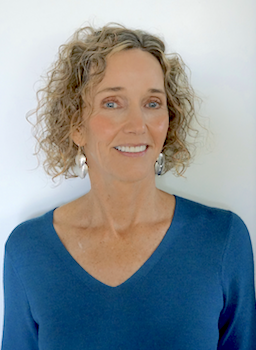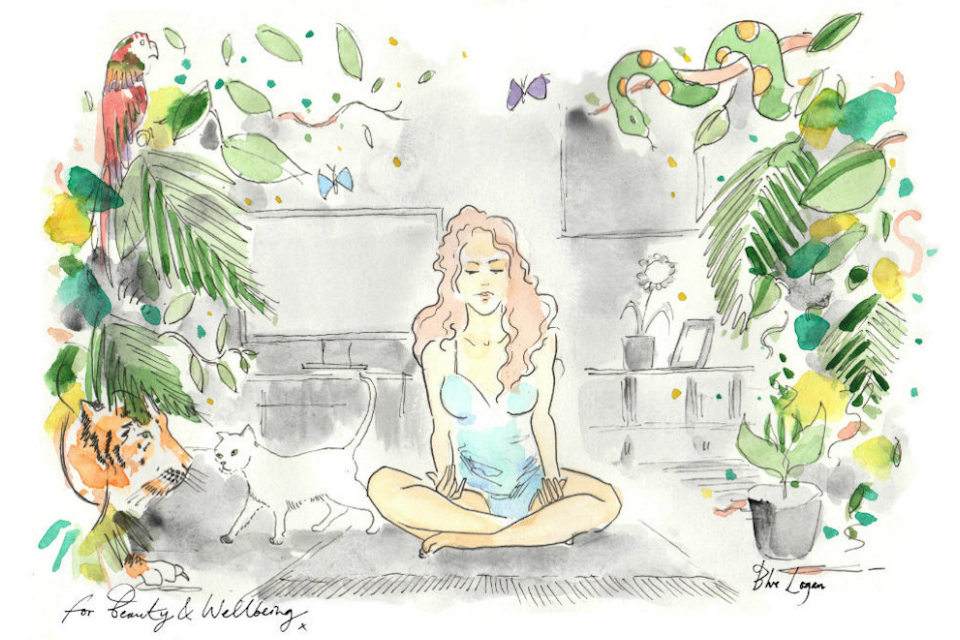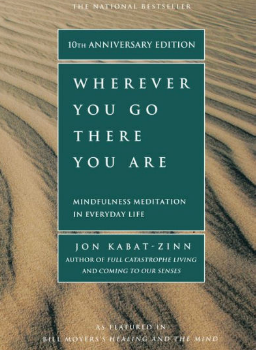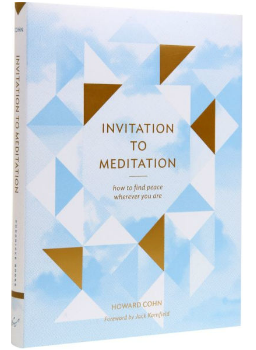A State of Mindfulness
Barbara Crisp’s guide to exploring mindfulness in daily life.
Breathing is easy – we all do it, or we would be dead! However, most of the time we aren’t breathing the right way, and are hardly aware that we are filling our lungs with the air that keeps us alive and well. Mindfulness meditation can teach us how to breathe correctly and fully (which not as easy as it sounds), and it can also help us all be in the moment, fully aware of our place in the world. Barbara Crisp is a “mindfulness” instructor who agreed to guide us through the practice of mindfulness and give us some useful tips.

Who is it for, at what age, and what are the benefits one can get from a regular practice.
Developing a mindfulness meditation practice is about training our attention, our ability to focus, so that we are more aware of what’s going on inside and what’s happening around us, right here, right now.
Mindfulness meditation is for anyone at any point in their life, from young children to the elderly. Research indicates that there are significant benefits to developing a mindfulness practice – more restful sleep, improved memory, more capacity to handle stress and regulate emotions, greater ability to focus, enhanced creativity, greater calm and joy. Teaching children mindfulness skills at a very early age can have a positive impact on their development, which in turn is likely to manifest in how they are in the world, and ultimately how they will give back. I’m particularly keen on what’s possible with children and emerging adults and how learning this skill set might shape a better and more conscious world.
Whatever the action is, in time it will come from an understanding of interconnectedness, that we are all one.
Developing a mindfulness meditation practice is about training our attention, our ability to focus, so that we are more aware of what’s going on inside and what’s happening around us, right here, right now. Cultivating this kind of moment to moment awareness gives us the ability to chose how to respond to what we are experiencing. When we become quiet and truly present to our day-to-day life we build resilience, and it’s this resilience that allows us to tap into our own well of wisdom. Whether you demonstrate kindness to all you meet, pick up trash in your neighborhood, become active in an earth conscious organization, run for political office, or offer time to those in need… whatever the action is, in time it will come from an understanding of interconnectedness, that we are all one. In this way, the practice of mindfulness is a gift that ripples out and blurs the lines of separation.
Can you give some tips on how to fit mindfulness into our daily busy life.
Despite the challenges of integrating daily practice into your busy lives, there are some things that can make it easier and help you to build your mindfulness muscle. Change takes time. Your willingness to be open, to make an effort, to have patience and a sense of humor will enable your practice to grow and evolve. Here are some tips:
- Schedule time to practice on your calendar, as you do everything else
- Find a mindfulness buddy and be accountable to one another
- Split your practice time into smaller and more manageable chunks so it can work within your schedule or for a particular period of time. Practicing in five minute increments throughout the day is better than missing a day.
- Set your devices to ring at intervals during the day as a reminder to breathe and pay attention to what’s happening right now.
- Before doing a pleasant activity, like reading, cooking, or whatever it is for you, take 5 minutes to practice. This will help associate pleasant activities with your mindfulness practice.
- Find a practice community, or start one. This is the most critical tip for cultivating a mindfulness practice. There are many cultural pulls that can take you away from your practice and if you don’t spend some time on a regular basis with others practicing, you’re likely to lose your momentum.
Can you recommend some readings or websites for people who want to embark on a mindfulness journey?
John Kabat-Zinn, Where Ever You Go There You Are (1994)
Sharon Salzberg, Real Happiness (2011)
Howard Cohn, Invitation To Meditation (2015)
Mindful Magazine
Classes:
Mindful Schools Courses– 6 week on line mindfulness fundamentals course
Mindfulness Based Stress Reduction (MBSR) – 8 week courses online or likely offered in your area.
Did the practice of mindfulness change your state of mind personally and in what way?
Cultivating a mindfulness practice over many years changed my life, giving me the gift of awareness and the internal peace that I had longed for. It helped me to understand and to manage the fact that change is the only constant. Learning to surf the waves of life versus having them crash down upon me was and is a huge freedom.
Are there different types of mindfulness meditation practice?
Mindfulness can be practiced anywhere and at anytime, simply by reminding yourself to pause, to connect with the breath, and tune in to the here and the now.
Every major world religion has some form of contemplative practice associated with it. However, mindfulness in contemporary culture is secular, and meditation is a significant aspect of it.
Mindfulness can be practiced anywhere and at anytime, simply by reminding yourself to pause, to connect with the breath, and tune in to the here and the now. Be present with whatever is going on inside and around you, without judgment and with a quality of discernment. Mindfulness meditation can be experienced sitting in stillness, walking, or guided by voice or sound. Everyone must find what works for them and follow that path with curiosity and openness.
______________
As a long time practitioner, Barbara has spent significant time in intensive silent retreat with renowned Western teachers. She has completed mindfulness teacher training with Mindful Schools (K-12), Koru Mindfulness (emerging adults), and is currently in MBSR training with the UMass Medical School Center for Mindfulness.

Françoise Hartman is a freelance writer and translator. She lives in the Southwest.








